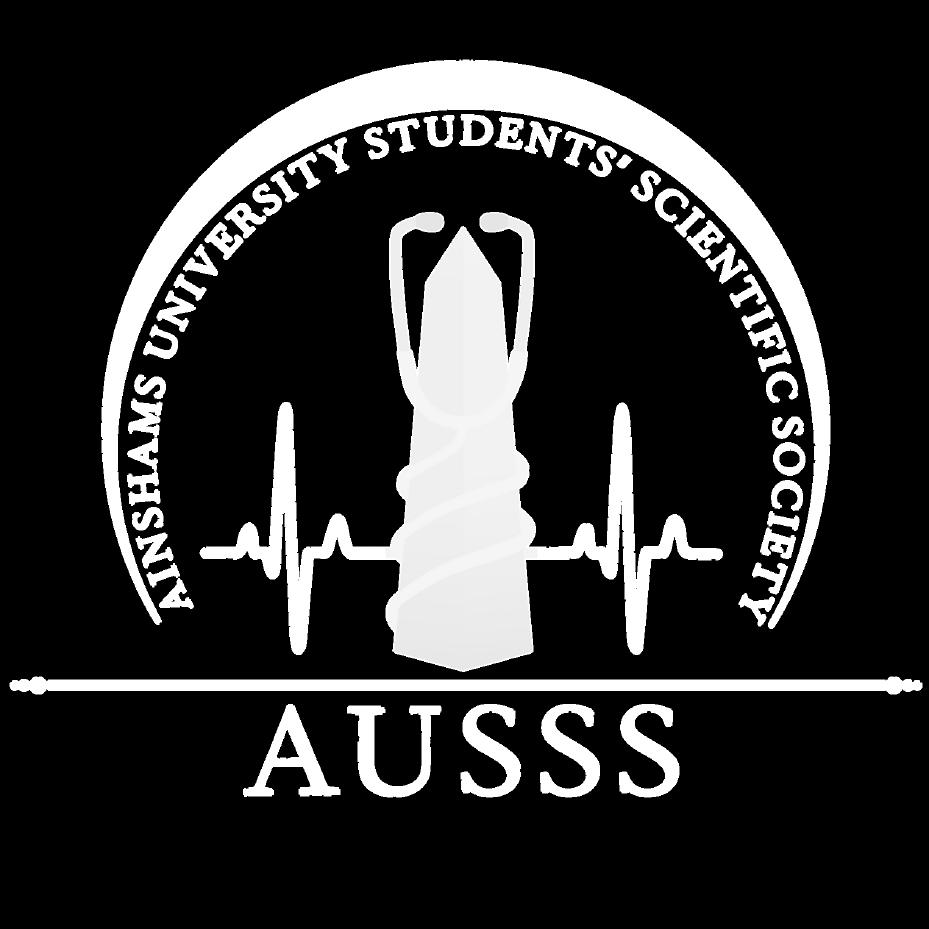

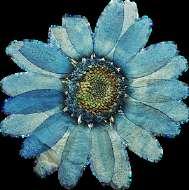







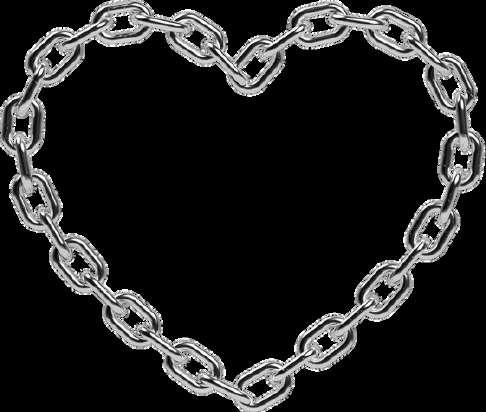
















Introduction.
Folklore: floppy discs and cigar boxes.
World news.
WHO: resilient world.
A 5-minute recipe.
What's trendy in fashion?


SAAM.
Crossword!
Identity among civil unrest.
The Met Gala 2023
Emotional resilience in a foreign land.
Tyrant of the month.
Sustainable Development Goals.
The condemned warriors.
Know-how: Session Outline.
Stress: a medical student's middle name.
What have our SC/SDs been up to?
Quick monthly recap! Credits.
A few years ago, (sounds unreal, doesn't it?) Earth stopped to heal. The world stood still. It gave us time for true colours to surface, for truths to be unveiled, for lies to crumble and for us to think, overthink, it gave us time to fall apart, and build ourselves once more. Earth gave us time to be resilient. But to give our Earth credit, it always has been, and some of our people have always been too. Along the years and eras, species adapted and evolved. They fought back; in this issue we tell you trivia of their resilience. The world shutting down gave us time to reflect, but so much still needs to be done. Our reflections did not guide our actions still. We moved on too soon, don't you think?





"Strangers get born. Strangers get buried. Trends change. Rumours fly through new skies".
In 1945, the Allies troops were advancing and Germany was losing the war. On the 28th of April, Mussolini was executed with his mistress by Italian partisans and both were then delivered to a public square and hung there so that people could celebrate their death. Having received the news, Hitler, afraid of what the Soviets would do to his corpse if they captured him and hoping to avoid the “dishonor” of surrender, gave verbal and written instructions on how to dispose of his body after his death.
The Soviets, first to arrive in Germany, immediately began searching for his corpse. In early May, they found severely burned remains in the Chancellery of a man and a woman presumed to be Hitler and his wife. They would later force Hitler’s dentist’s assistant to accompany them to the Soviet Union to confirm that the dental remains are indeed Hitler’s. They then held her captive in a soviet prison and made up a sentence of helping prolong the war by not killing Hitler when he went to his dentist.
Two days later, on the 30th of April, Hitler and his wife (on the same day, may I add) killed themselves. Hitler had shot himself while his wife, Eva Braun, is believed to have died by cyanide poisoning .

His remains were burned in the Chancellery garden immediately after as per his previous instructions.

The very next day, the news spread over the radio that the Fuhrer was dead. The radio interrupted the regularly scheduled programs and announced that that he had died “fighting to the last breath against Bolshevism (meaning the communist movement, the Soviet Union)” , and announced his successor, Admiral Karl Donitz, who tried to prolong the war but eventually on May 8th agreed to a complete surrender.
When the British and American forces arrived in Germany, they asked about Hitler’s body and, under Stalin’s orders, the Soviets denied having found anything. Later on, in the Potsdam conference, held in the Soviet union to allow the Allies to plan for the post war peace and decide the fate of the losing countries (it does sound kind of childish, like they’re deciding on a punishment for losing a bet), when asked about Hitler by Winston Churchill, Stalin went as far as starting rumors that he is alive in Argentina or Japan and even accused the Allies of hiding him.
While still denying his death, the Soviet Union started another narrative that he died by cyanide poisoning, believing that it was a cowardly way to die compared to a bullet to the head.

It wasn’t until 3 years after Stalin’s death and 11 years after Hitler committed suicide that west Germany issued an official death certificate in 1956. The Russians kept a part of his skull that was not completely destroyed by the fire (coincidentally enough, the part with the bullet wound) and his teeth. The rest of the body was in East Germany until April 1970 when orders came from the Soviet Union to exhume the body, burn the remains and throw the ashes in a river.

In April 2000 (because all interesting things happen in April, if you haven’t noticed by now), a fragment of Hitler’s skull with the bullet hole was presented in Moscow as a part of a WWII exhibit for the first time.
Dr. Mark Beneck, a German forensic biologist who was asked to investigate the remains of Hitler visited the archive to find that his skull was kept inside a floppy disc storage box, while the teeth were kept in KGB archives in a cigar box.

A final take home message is that if you find it hard to be a decent human being and not commit massive genocide, just think about whether you want your remains to end up in the ground or in an old cigar box.

Wood frogs freeze their bodies:
To survive the winter, up to 60 percent of Alaskan wood frogs' bodies freeze solid. They also stop breathing and their heart stops beating This allows them to survive temperatures as low as -80 degrees Fahrenheit. And in the spring, they thaw out.
APRIL. I hope what happened during this month was a huge April’s fools, or I was just dreaming again. Man, that was a LONGGG month. Where should we start?
Let’s start with the TEAA (hehe) have you heard about Miss Swift and Joe breaking up? Well, if you didn’t, where do you live? Seriously, fingers crossed it's just a rumour (just for Heba not to cry).
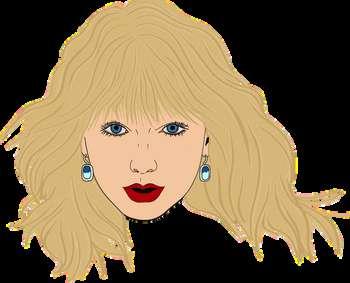
Man, I remember that time of the year I was visiting the pyramids, and here is a fact: Cleopatra wasn’t BLACK. I don’t know what Netflix is trying to prove by that documentary, but all I can tell is that it’s all wrong from the beginning. Still, I wanted to also highlight the efforts of the young generations in talking about their heritage and history. Nonetheless, what I didn’t particularly appreciate was how some people defending their ancestors turned to racism, so I want to say that I don’t stand for that, and that wasn’t the right thing to do to prove we are correct.
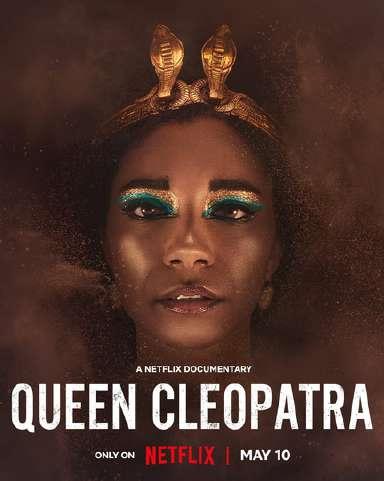
I watched 100 videos of "get ready with me for Coachella". I wonder when my turn to do one of those videos would come :( However, thank god I still have Eid; it was my Coachella. A lot of people agree with the fact that Eid “


" and sadly, I relate to that; we no longer make “ﻚﺤﻛ" , we buy it, I no longer stay up till Eid prayer. I don’t wake up early to get ready. Eid was hard on me and many people, but I still have hope and belief inside my heart that things will get better.
During this month, we celebrated Ramadan, Easter, and Eid. Our families in Palestine and Sudan weren’t allowed to celebrate those holy days and lived through war and tears when they were supposed to care about their Eid outfits. All they thought about was whether they would be able to survive till Eid or would watch another sunrise running away from their homes, searching for peace when peace is supposed to be home.
For them, my heart breaks every year during the holy month; people in Palestine have to relive horrors every year, and it made me mad how the world is not caring as always. Now, Sudan joined, and the world still doesn't care.
Tragedy befalls our sudanese families and we must speak of what has been happening in Sudan recently. All I can do is pray for the children, families, people there, and all my Sudanese friends who aren’t in Sudan now. I can only imagine how you are feeling, especially those of you with families in Sudan. We stand with you. Stay strong and keep your hands raised to the sky. May god help us through these challenging times.
M I S S I N G C E L E B R A T I O N SWith hundreds killed and thousands injured over the past few days, the condition in Sudan has only been getting worse. The main international airport has been affected badly and the people are evacuating through dangerous roads to cross the northern border into Egypt.


The conflict has had a devastating impact on the people of Sudan, particularly in Khartoum. Residents have been forced to flee their homes and seek shelter in overcrowded camps, where they face a severe shortage of food, water, and medical supplies. The violence has also disrupted essential services, such as healthcare and education, leaving many vulnerable people without access to basic necessities. Army showed no mercy even on the occasion of Eid. Continuous raids and loots have been going on.
The situation in Sudan needs dire attention and here is how you can help: Educate yourself and others: Learn as much as you can about the situation in Sudan and share that knowledge with others. Make sure you are getting your information from reliable sources, like news outlets and reputable organizations. Donating to organizations that provide food, shelter and medical care is a great way to assist, as in volunteering with organizations that provide education and job training. By providing much-needed resources and support to the incoming refugees.
Let us not undermine how powerful creating awareness about the situation in bringing about change is. Social media is a powerful tool for spreading information quickly. Share news articles, infographics, and anecdotes about the situation in Sudan on your social media platforms. Use hashtags like “#SudanUprising” and “#BlueforSudan” to increase visibility.
For those who would like to donate, find attached below some reputable campaigns here and here!
Antarctic fish have "antifreeze" proteins in their blood: The proteins bind to ice crystals in their blood, preventing the fish from freezing.
Israeli forces attacked the Al-Aqsa mosque, fired stun grenades, used rifle butts to beat worshippers, and arrested hundreds of people during two consecutive nights. Prior to this, eyewitnesses said they shot 26-year-old Mohammed Alasibi at least 10 times after he tried to prevent them from harassing a woman who was on her way to the holy compound of Al Aqsa. In a statement, the Islamic Endowments Department in Jerusalem said 1,532 settlers stormed Al-Aqsa Mosque in 21 groups ESCORTED by the Israeli police. In the latest act of violence against Palestinians, Israeli forces shot and killed a Palestinian man in the occupied West Bank. According to eyewitnesses, the man was unarmed and posed no threat to the Israeli soldiers. This incident marks yet another example of the excessive use of force by Israeli authorities against Palestinians, who have been struggling against the occupation for decades. The Palestinian community has been condemning this act and demanding justice for the victim, but unfortunately, such incidents have become all too common in the region The international community must take notice and hold the Israeli government accountable for these human rights violations.
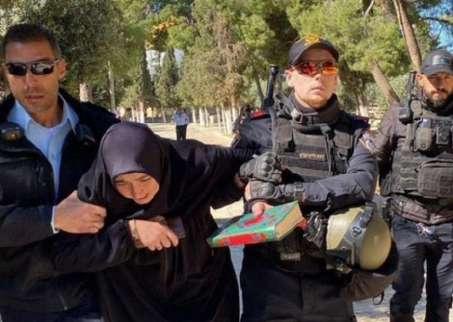
The holy month of Ramadan is supposed to be a time of peace and reflection, but for the people of Palestine, it has been marred by yet another series of brutal attacks by Israeli forces.
However, the world gathered together in solidarity with Palestine. This also served as a reminder that the Palestinian cause remains a contentious issue, capable of mobilizing people across borders and raising awareness about Palestinian's rights and freedom.


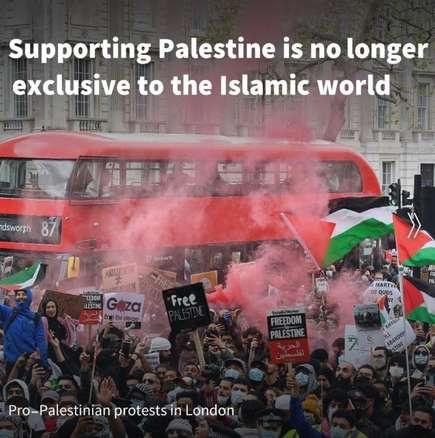
123 Anywhere St., United for a free Palestine.
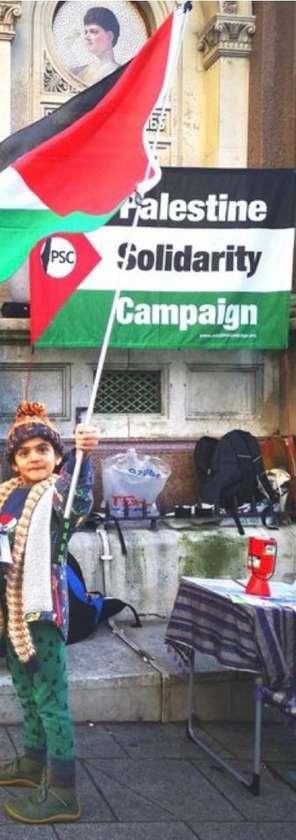


Family planning has always been considered a woman's responsibility, but with the advancement of medical science, the dynamics are changing. The development of a male contraceptive pill could revolutionize the way we think about family planning.
For decades, women have had to bear the brunt of unintended pregnancies, hormonal imbalances, and the side effects of contraceptives. However, the possibility of a male contraceptive pill could change the narrative and give men the opportunity to share the responsibility of preventing unintended pregnancies.
A recent article published on medical news today discusses two candidate pills and a compound that blocks an enzyme sperm use to swim, which could become the first hormonal contraceptive for men. These pills have shown promising results in clinical trials, and if approved, they will provide men with a safe, reliable, and reversible form of contraception.
One of the pills, DMAU (dimethandrolone undecanoate), is a modified form of testosterone that reduces sperm production without affecting libido. The other pill, HDB (11-beta-methyl-19nortestosterone dodecylcarbonate), is a progestin that blocks the production of testosterone and sperm.The compound, EP055, is a non-hormonal contraceptive that targets the enzyme needed for sperm to swim.
This compound has shown promising results in animal trials and could be a gamechanger in the field of male contraceptives.The future of family planning is getting better and better, thanks to the advancements in medical science.
Keeping up with the theme of resilience, on April 7th, the World Health Organization celebrated its 75th anniversary with the theme “Health for all".
In April 1945, the idea of an international health organization was first proposed, by representatives from Brazil and China, after the end the end World War II during a conference set up to establish the United Nations. A constitution that defines its principles was written and in August 1948, the WHO would come into force after 26 members of the UN had ratified it
The first world health assembly was held in the summer of 1948 in Geneva and it established the then priorities of the organization which included malaria, TB and nutrition.

In 1977 the last case of smallpox was reported in Somalia and in 1980, routine vaccination to smallpox was halted.
In the 1970s, the WHO began taking an initiative that focuses on fertility regulation and birth control methods.

In 1974, the WHO launched a program aimed to vaccinate children against common diseases, including diphtheria, measles, poliomyelitis, and many others.
In 2011, it adopted a Pandemic Influenza Preparedness Framework as a way to give developing countries access to countermeasure during pandemics.
5.
In 2016, the WHO created a global strategy for Women’s, children’s and adolescent’s health with the objectives "survive, thrive and transform".
During a flood, fire ants can form a ball or a raft to combat forces. Their powerful grip turns them into a semi-solid structure. The ball rolls, allowing every ant to get a breath.

Over the Years, the WHO remained resilient in the face of new challenges and illnesses, so we thought we could show you some important initiatives:


2 cups of frozen strawberries
1 medium sized banana (fresh or frozen)

1 cup of regular milk (or any type of milk)
Place all ingredients in a blender and blend till smooth then serve.

Baggy cargo pants, parachute pants. Baggy everything.
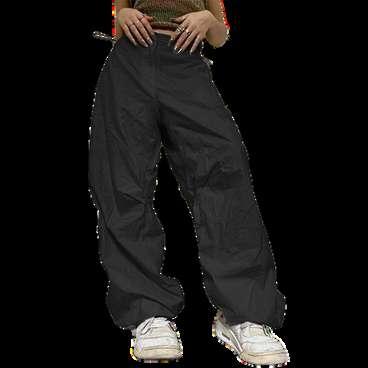
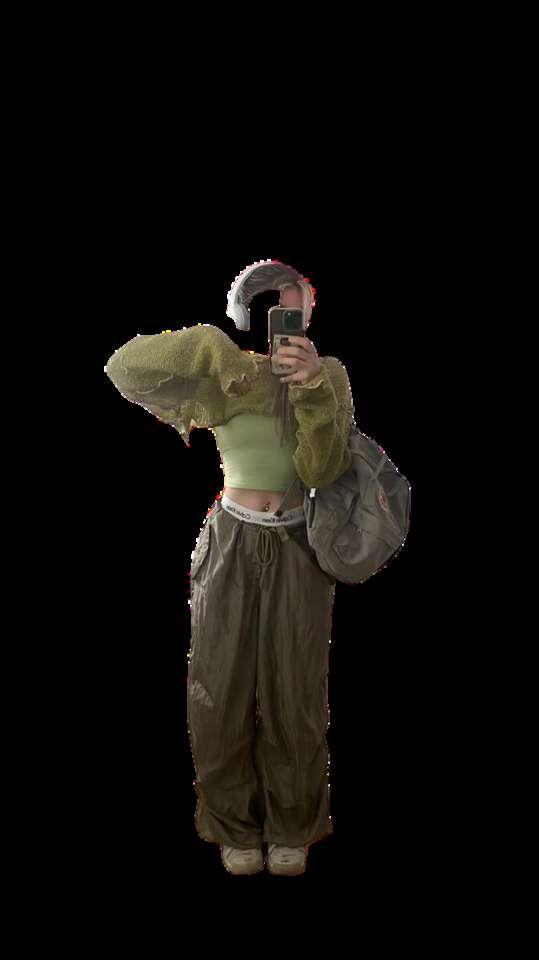

Looking simple yet fancy with the right accessories, POOOOF

d pants ing towards lour mbos are
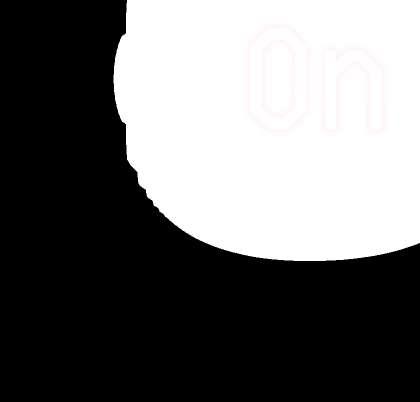
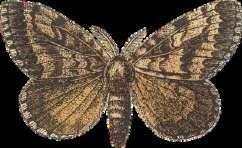
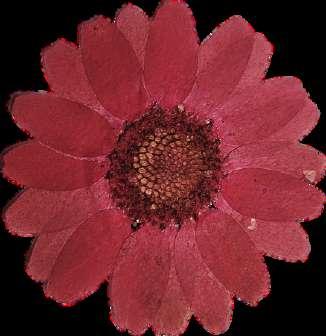


Finally, we ditched the nonfunctional tiny bags & have our huge bags wohoo
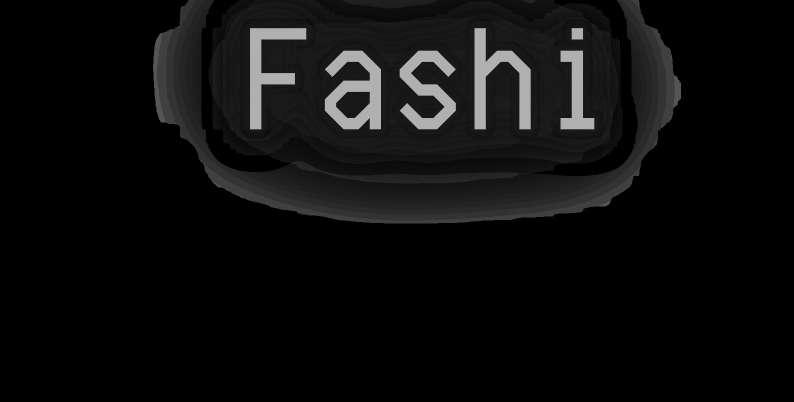
April is Sexual Assault Awareness Month, a time to raise awareness about sexual assault and to provide support to survivors. Sexual assault is a pervasive issue that affects people of all genders, ages, races, and backgrounds. It is estimated that 1 in 3 women and 1 in 6 men will experience some form of sexual assault in their lifetime, and these statistics are likely an underestimate due to underreporting.
“Malak was devastated and felt like she had nowhere to turn, struggled to come to terms with what had happened to her. She felt ashamed and blamed herself for what had happened. She didn't know where to go or who to talk to about her experience."
Unfortunately, sexual assault is a widespread problem, and what happened to Malak is called survivor's guilt is a common and complex emotion experienced by many survivors of sexual assault It's a feeling of guilt or shame that can arise after the assault, even when the survivor did nothing wrong. It's important to understand that survivor's guilt is a normal response to trauma, and that it doesn't mean that the survivor is responsible for what happened to them.
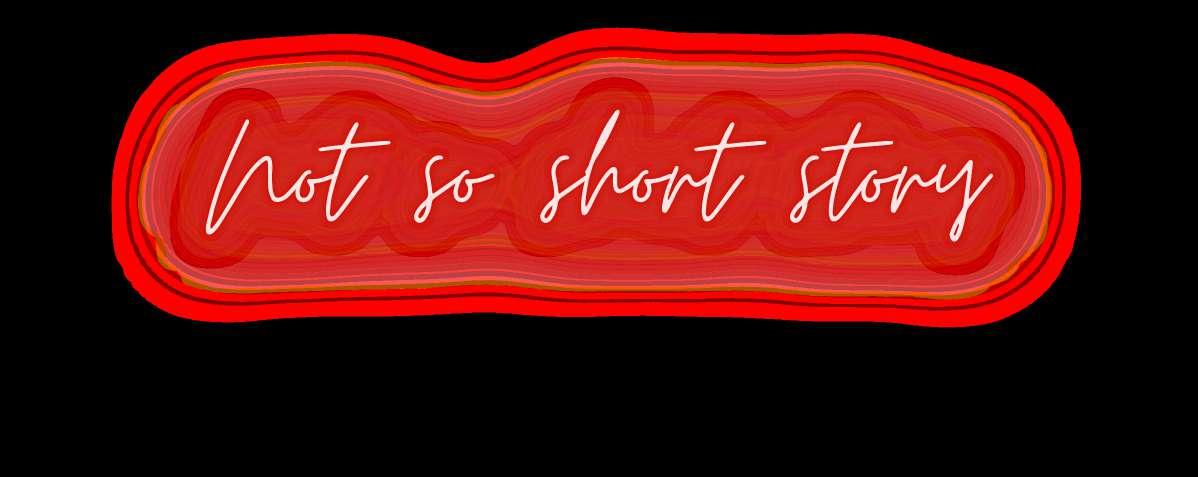
“
A few weeks later, she saw an Instagram post about “SAAM” this post was from a local organization that provides support for survivors of sexual assault. She decided to reach out to them she texted them after days of overthinking and going back and forth and then she found comfort in their resources and community to and met other women who had also experienced similar and varies sexual assaults.”
One way to help herself from the sexual assault was finding a community. As seen in the story above, Malak found this organization that help many other survivors like her by providing survivors with a safe space to share their experiences and receive support. It also helps to raise awareness about the issue and to encourage people to take action to prevent sexual assault.
It's also important to recognize that sexual assault affects everyone differently. Some survivors may want to speak out and share their stories, while others may prefer to keep their experiences private. Whatever the case may be, it's crucial to respect survivors' boundaries and to provide them with the support they need.
The types of sexual assaults are so many some of them are (Rape -Sexual coercion– physical assault as what happened to Malak in the story and child abuse with all its type mainly Female Genital mutilation )
*I highly recommend reading this amazing Manual made by the amazing National team for FGM*.
“Through counseling, support groups, and advocacy, Malak was able to start healing from her experience. She also became an advocate for sexual assault awareness, sharing her story and spreading the message that survivors are not alone and that they deserve support and justice helped her a lot to go out and feel the wind of freedom again through attending workshops on how to support survivors and self-defense classes to empower women to protect themselves.”
One of the most important aspects of this month is to empower survivors to speak out and seek help and this is exactly what Malak did. Another important aspect of Sexual Assault Awareness Month is education. By educating people about the signs of sexual assault and how to prevent it, we can work towards creating a culture that prioritizes consent and respect. This includes teaching young people about healthy relationships, boundaries, and communication skills.
It is important to note that seeking support for sexual assault in Egypt may be difficult due to societal stigma and legal barriers. By taking action at individual, community, and institutional levels, we can work towards a world free from sexual violence.

“Malak educated herself and Others and made a lot of successful events and workshops about consent, healthy relationships, and sexual violence, she is now part of the organization that help other survivors, she made a powerful campaign about how to intervene when you see someone at risk of experiencing sexual violence and she is also advocating for Systemic Chang, Malak felt proud of the impact she had made and the support she had received from the community. Sexual Assault Awareness Month had given her the platform to share her story and help others.”
Malak's story is just one example of the many survivors of sexual assault who face trauma and stigma. However, it also highlights the importance of raising awareness and providing support for survivors of sexual assault. As we continue to raise awareness about sexual assault, it's important to remember that this is not just a problem for one month out of the year. We must work towards creating a culture where sexual assault is not tolerated and where survivors are believed and supported. By coming together as a community, we can make a difference in preventing sexual assault and supporting those affected by it
Malak became an Advocate which is something really great so let’s see what she did to help
1. (of a person or thing) become fully grown or developed.
3. Struggle to overcome, eliminate, or prevent.
4. the quality of forceful or persuasive expressiveness
2. the capacity to withstand or to recover quickly from difficulties; toughness.
5. a painful feeling of humiliation or distress caused by the consciousness of wrong or foolish behaviour.

Civil unrest, commonly a result of social injustice and a lack of human rights, causes the loss of many lives and often leads to the loss of one’s own identity. My friend, a Syrian, shared some of the difficulties she faced due to the civil unrest that her country has been enduring for two decades. Amidst protests that rose as a way to bring justice, many people lost their lives and a lot were forced to flee the country in hopes of finding a safer place to live. That, in turn, caused Syrians to face a fragmented sense of identity as it is challenging to maintain one’s tradition and identity as a foreigner.
Fleeing did not stop the oppression they were facing. In fact, now they were faced with new challenges as they navigate a new and unfamiliar life and world. My friend, Hanan, found herself in America with a fresh start, and with that fresh start, she realized that the problems she faced, the issues that were such an integral part of her life and what led her to where she is today, is almost non-existent to the people around her.


An identity is who you are and how you are perceived. It’s shaped by where we come from, where we live, our interests, cultures and traditions. An identity gives a sense of belonging and confidence. For Hanan, her identity lied in educating those around her about the conflict and civil unrest her country has been facing.
Shedding light on the issues Syrians faced linked her to her country and heritage. Amidst the new life and culture she has been exposed to, she showed me just how Syrians, despite being faced with all of these challenges , still found, and continue to find, a way to form a new and unique culture of their own. They paved a path, while still not smooth, that is admirable and a sentiment to the resilience us humans have while faced with adversity.
Plastic eating microbes have been discovered: Many microbes living in oceans and soil world-wide have evolved to eat plastic especially if they live in areas polluted with it.







Lily Collins, "Emily in paris". She served, ate and left no crumbs.

Duaa lipa wore a stunning Disney like dress and what amazed me were the POCKETS!

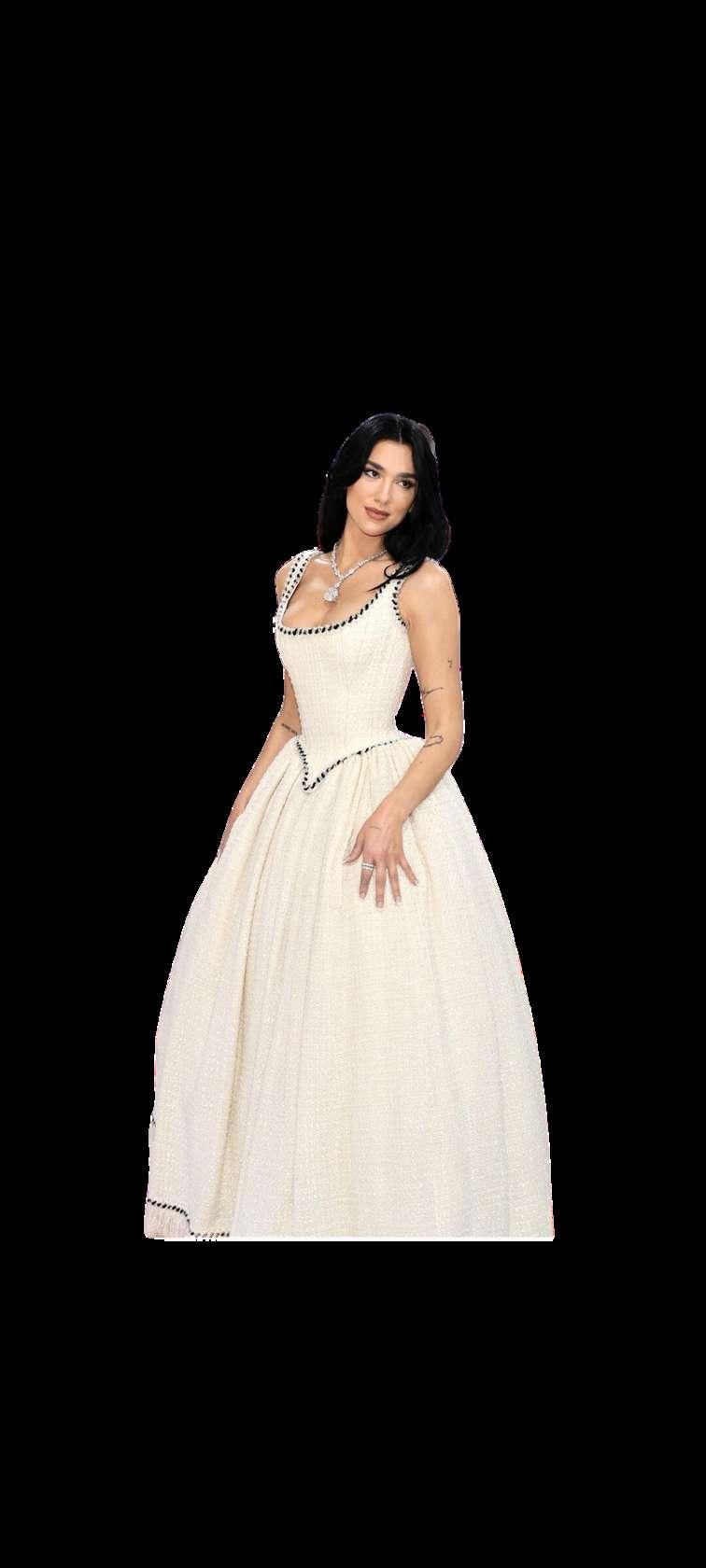
With a hair updo this was going to be fire.

Salma Hayek

OH LORD, that's PERFECTION !!
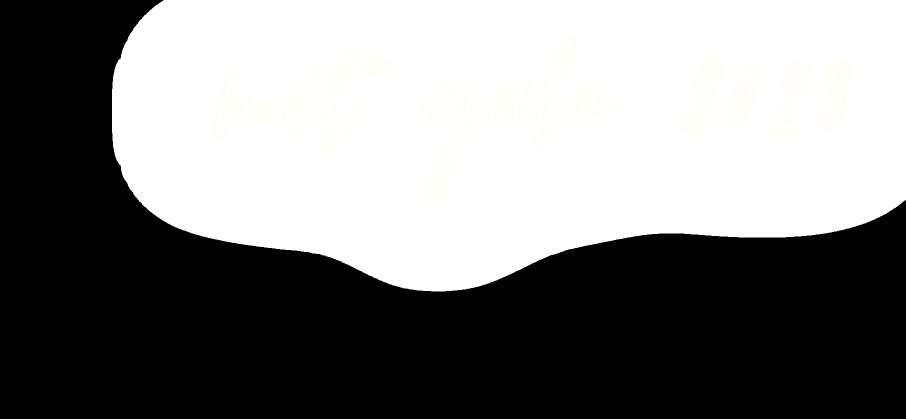

Giving sexy, drama, texture & elegance. The hair & jewellery are also matching well. 1000/10!

Anne Hathaway
Nothing new but GOD HOW CAN I NOT LOVE THIS.




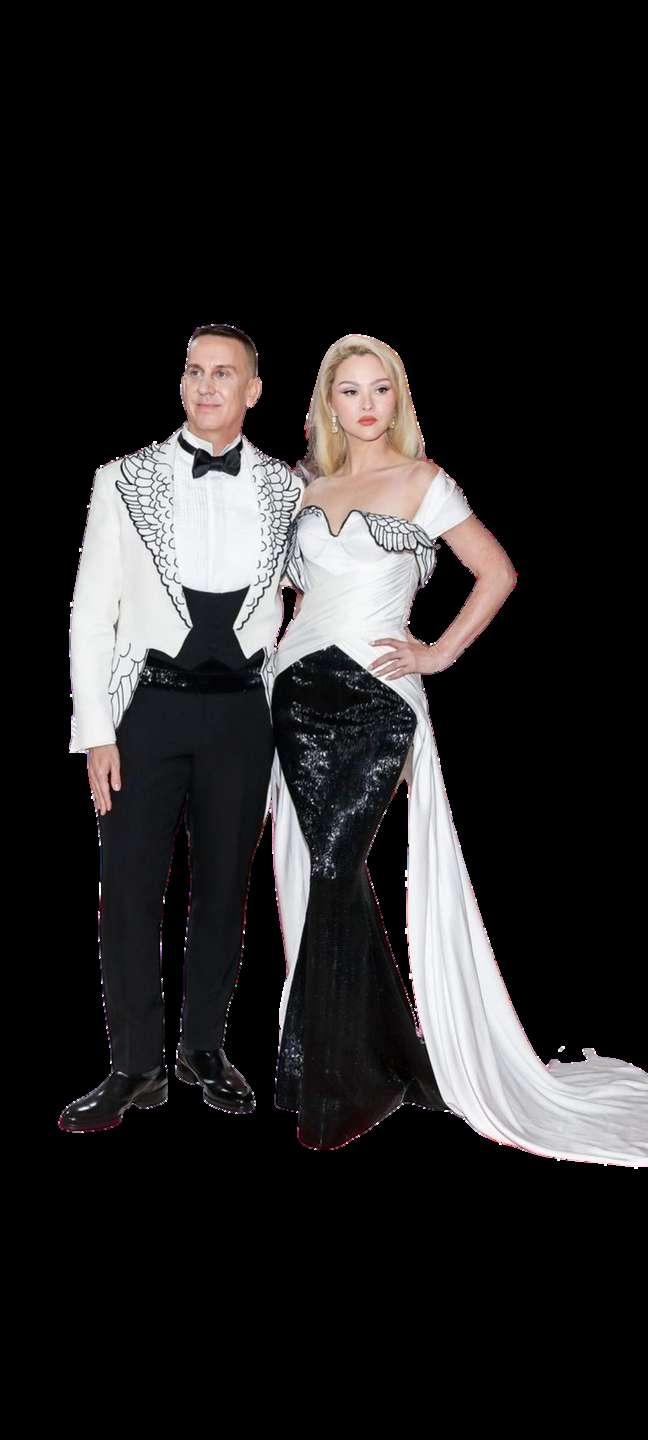


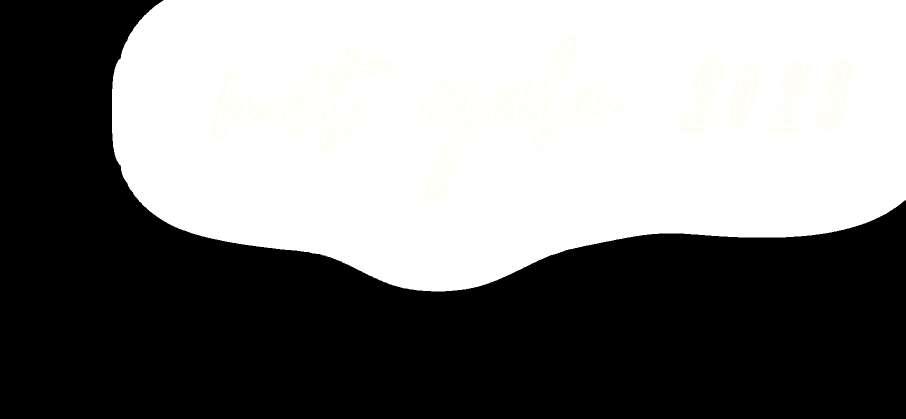

There we outfits b y y wasn't one of them.
Without a doubt, heaps of people have a little adventurer in them, wanting to go all out and explore the world. Although it’s not always easy being an exchange student, there’s still a little voice in our heads trying to overcome the fear in our hearts of being alone in an estranged land, uncertain of all the possible situations that could arise unanticipatedly. In such circumstances, one presents emotional resilience, reacting mindfully and accordingly to whatever they may face.
One of the most noteworthy, and perhaps familiar, states that a traveller could experience is the overwhelming feeling of homesickness. Most of us have probably experienced it at some point, whether it be in a completely different land or simply a week away in the North Coast. For an exchange student, it could be exceptionally immense. A month away from home, a different time zone, a different language, and all in all a different daily routine could be a lot to take in at once. It’s only natural that they start missing their family and friends, their mother tongue with which they express themselves best, and even their home country’s downsides!
Once they arrive, their new sleep schedule might take a while to get used to, especially if they moved to a different time zone. It would get increasingly difficult to maintain contact with family when it’s 4 AM back home but 7 PM where they are, and they’ll yearn to hear their voices in the background.
They wouldn’t feel as comfortable as they‘d be if they were sleeping on their bed, taking a shower in their bathroom, or even picking outfits from their closet. Sometimes there could be a language barrier between them and their roommates, which makes it hard to develop a connection. In order to feel better, they could start craving their favourite comfort food, but even that wouldn’t always be available in this new land. Gradually, these factors might start negatively affecting them physically, mentally and emotionally, yet they still have to give in their best attempt at pushing through and integrating into this new system anyway.
For a Middle Eastern, there’s always this extra pressure of being able to blend in with Western societies and leaving a good impression. Unfortunately, the media has devised such a repulsive image of Muslims and Arabs in general that we grew this sense of responsibility to change people’s ideas of us.
In a foreign land, there’s always the fear of constantly being looked under the microscope and getting judged even just from the way we look or dress, hence we must make sure we display the best version of ourselves at all times. If we mess up, they’d blame our entire society for our “backwardness”. If we’re simply in a bad mood and frown, they’d throw in the stereotype of being an “angry Arab”. There’s always the risk of getting discriminated against or interacting with racists, but we try to remain our cool. We give in our all to show the world that we’re human beings just like anyone else and not terroristic bigots.
As much as we try to exert effort to fit in, certain difficulties continue to arise along the way. The majority of Arabs are Muslims, so staying in a non-Muslim country will never go as smooth as butter for a practising Muslim; there’d be a lot of clashing of principles. For example, the entire group could go out for a night of drinking, which is not allowed in Islam, and so fitting in wouldn’t exactly be an option in this case. Maybe they could head to a restaurant that doesn’t serve halal meat nor vegan options, limiting the Muslim’s choices for food. It could also be a challenge for non-Muslims to comprehend why skinship between the opposite sexes is not allowed and if they’re unlucky then some might even take it to offence.
There’d be a constant battle between sticking to one’s principles and gratifying the West.
Over the years, the concept of the West, Caucasians in particular, being more developed and “superior” has been ingrained into the minds of many. From here evolved the “Western complex”, which is especially prevalent in Egypt. A lot of Egyptians feel rather inferior to the white man we see on TV with blond hair, blue eyes and the perfect white smile. As a result, there’s the perpetual aim of pleasing the Western man, seeking his validation and waiting for his approval. This epidemic has affected many, including children, adolescents and even exchange students. If they’re in the West, they could feel the need to deem themselves worthy, or prove that they’re no less than anybody. Either way, it could eventually feel tedious, mindnumbing and just another weight on their shoulders.
With all that being said, all these negatives could be outweighed when you enjoy all the other positives. The beauty of nature in another land, the kind people you’ll meet and possible new friends you’ll make, the feeling of independence all make it 100% worth it. You come out of the experience stronger and more emotionally resilient, which is an incredibly respectable and crucial trait to have, especially for someone who works in the medical field.

Hi, I am Hanein a thirds year medical student in Ain Shams and last September I was in brazil for a SCOPE exchange. The experience was absolutely overwhelming and I say this in the best way possible. It was an emotional roller coaster that taught me a lot about who I am and showed me things I never dreamt of seeing. It definitely wasn't sunshine and rainbows everyday, there was a lot of crying to my best friends and parents on the phone and searching for earlier flights. The homesickness hit me a lot harder than I expected and being in a place where you can't even communicate due to the language barrier and trying to blend in with the different lifestyle was not easy. Especially that there aren't a lot of muslims in brazil so people were not used to seeing a hijabi in the streets. The looks and questions were more curious than they were judging so I tried my best to share my culture and educate people. Having a good support system that I could talk to about my struggles and making an effort to build meaningful connections while keeping an open heart was what got me through that month. And in the end its safe to say I have zero regrets, except maybe not having more fun.
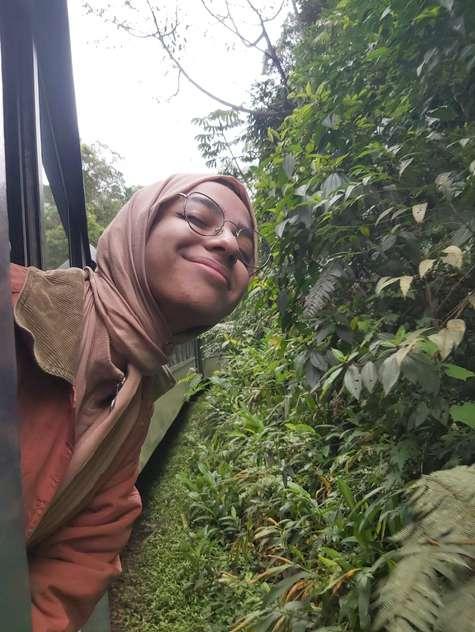
Plants have reclaimed Chernobyls poisoned land:
Despite the devestation, local flora is flourishing around the Chernobyl reactor. Scients have seen that the plants have changed their protein structure and composition. They even manufacture extra proteins that bind heavy metals which protects them from low level radiation.
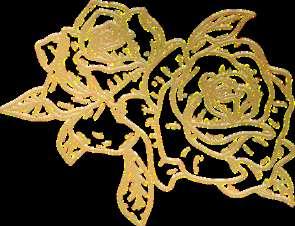

We wanted to introduce a new segment to the history section talking about tyrants born in the same month as the magazine issue, annnd it just so happens that Hitler was born on April 20th.
Disclaimer (just in case): we are fully aware of how horrible these people were and are conscious of the damage they caused, however this section is merely meant to share with you some interesting facts about them.
Hitler, a psycho or a tyrant? A question that has left humanity skeptical to this very day. His enigmatic character and doublestandard ideologies blew the minds of people from all walks of the earth; which undoubtedly provoked many to painstakingly search into his life. Sooo here are the most interesting facts we found:
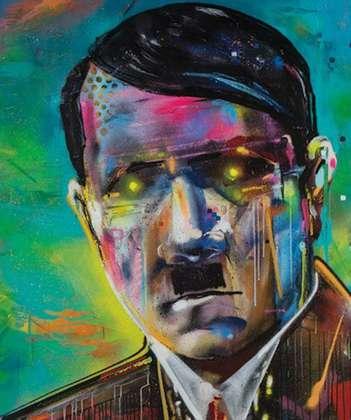
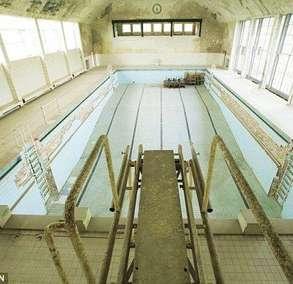
When he was 4 years old, he almost drowned but was saved by a priest ( the first of a long line of what ifs in his story )
Adolf Hitler was an illegitimate child, so until his mother legally married his father, he took her maiden name which was Schicklgruber ( imagine having to memorize that for your history exam )
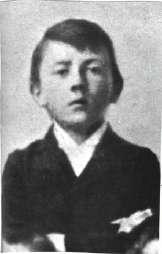
3.
Hitler’s family doctor growing up was Jewish ( yep. ). He treated his mother until his death and years later was put in the protection of the Gestapo under Hitler’s orders. According to Hitler, he was a “ noble Jew” and “ If all Jews were like him, there would be no Jewish question.”.
6.
In the 1920s, he was imprisoned for high treason after a failed coup.
Bonus fact: he wrote Mein Kampf, the book about his struggles, while in prison
In 1918, nearing the end of the first world war, a British soldier encountered an injured German lance corporal and decided to spare his life ( can you guess the German’s name ?)


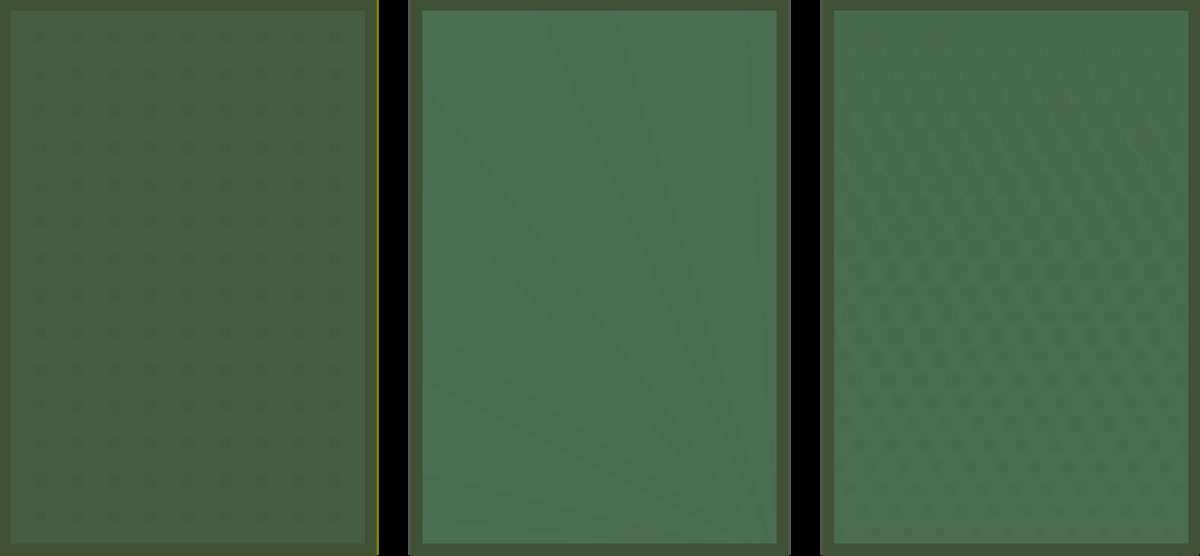
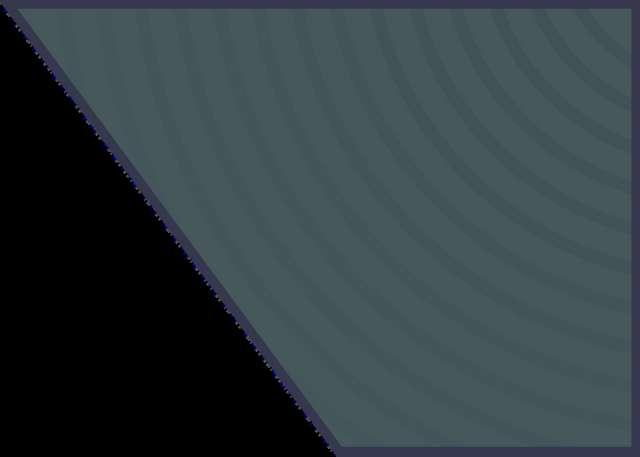
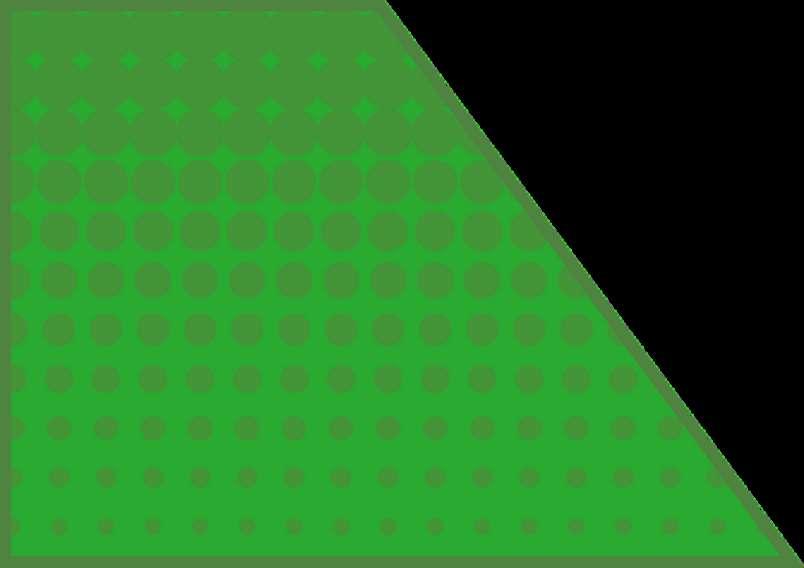
In 1936 a German journalist named Carl von Ossietzky, a vocal critic of Hitler won the 1935 Nobel Prize. This gesture was perceived as an insult to Germany.
Out of spite, Hitler banned Germans from accepting Nobel prizes. He initiated the German National Prize for Art and Science to replace it.
8.
goes to ...
In 1939, a Swedish legislator nominated him for a Nobel peace prize as a joke which caused quite a scandal as you can probably imagine.
5. Tortured artist Hitler wanted to be an artist but was rejected twice from the institute of fine arts in Vienna
He was a vegetarian, but not for the noble reasons as you can probably imagine. It is rumored that he turned vegetarian after the autopsy of his niece ( with whom he was quite obsessed ) who committed suicide.
Hitler was quite a megalomaniac. His obsession with his image drove him to hire a photographer named Heinrich Hoffman to capture photos of him while giving speeches. Fun fact, these photos were supposed to be deleted; luckily, Heinrich did not delete them.
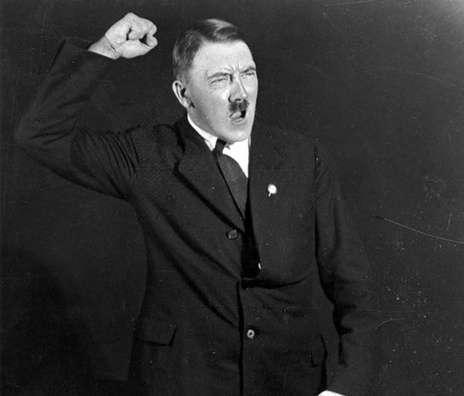

Hitler’s doctor Theodor Morell diagnosed him with Parkinson's a few weeks before his death. However, his symptoms were quite noticeable years before the diagnosis.
Out of the fear of exposure, Hitler’s presentation in movies and images from 1941-1945 revolved entirely around ways to hide any signs that revealed his Parkinson's. His left arm, the first to manifest some of the signs of the disease, was either kept held in his pocket or clasped by his right hand, hoping that it would not be visible to the public eye.
This fear stems from the deeply engraved morals and principles of the military which were against any form of hindrance to physical well-being, meaning “Disabled”.
With every edition of the AUSSS magazine, a theme is selected based on a large variety of factors. This month, with all the ongoing disheartening and unjust wars and attacks occurring in Sudan, Palestine, Ukraine, and many other countries all over the world, we saw that the theme of “social resilience” would be most fitting, as it would allow us to highlight the strengths, perseverance, and bravery of these communities in the face of disasters.
Social resilience encompasses the ability of individuals, institutions, and communities to not only survive, but to adapt to environmental and societal threats of various kinds. These threats are usually viewed as external factors that disturb said social units, but they can also stem from internal dynamics, or perhaps even the interaction between the two.


A genetic mutation in killifish have allowed them to thrive and grow in toxic waters along the northern gulf of mexico. This mutation has allowed them to withstand a chemical pollutant concentration that is thousands times higher than the normally deadly dose
To build social resilience, on the level of any nation, it is imperative that the vulnerable groups are not only recognized, but also empowered. Poor households need to be empowered. Oppressed and marginalized groups need to be empowered. Uneducated groups need to be empowered, The elderly need to be empowered. Women and children need to be empowered.
Empowering vulnerable groups will allow us to build adaptive capacities by decreasing their limitations.

Accordingly, all SDGs are relevant and important to the creation of resilient societies. However, it would be unrealistic to discuss all 17 goals and their individual targets and indicators in one go, so let’s focus on one which is SDG 16:
Promote peaceful and inclusive societies for sustainable development, provide access to justice for all and build effective, accountable and inclusive institutions at all levels
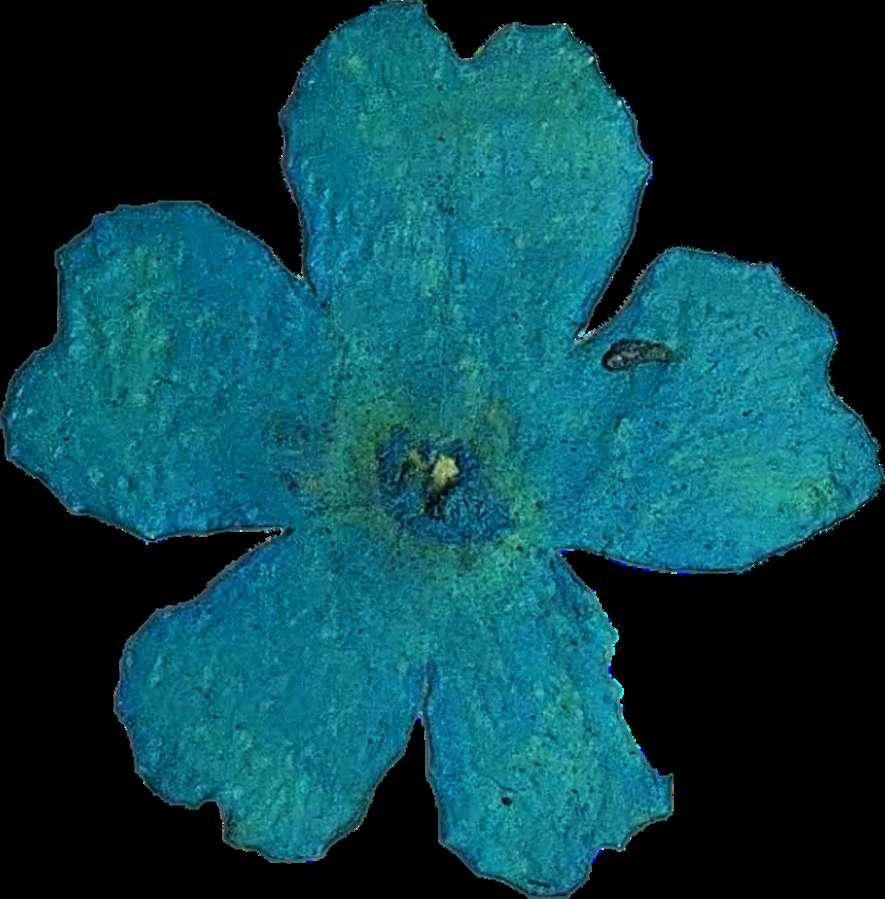
Why this goal? Because no matter how much we try to build resilient societies, people everywhere have the right to live free, without any fear, in safety as they go about their lives regardless of their sex, race, religion, sexual orientation, etc.
This goal has 12 targets and 23 individual indicators. The targets focus on a wide range of forms of violence that threaten the peace of institutions such as death related violence, human trafficking, abuse, exploitation, unequal access to justice, corruption, bribery, etc. It focuses on building effective, accountable, and transparent institutions that ensure responsive, inclusive, participatory and representative decision-making at all levels.
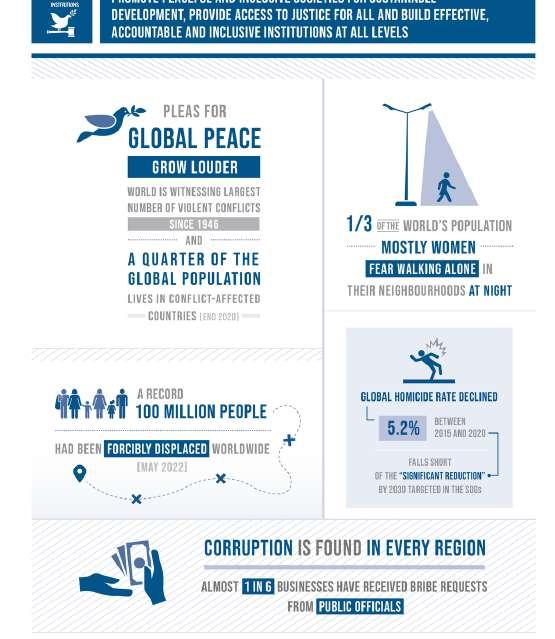
You can read more about the targets, indicators, and progress made through this link: https://sdgs.un.org/goals/goal16
The achievement of this goal requires the collaborative work of civil societies, communities, and governments to implement long standing solutions that reduce violence, deliver justice, and promote peace for everyone. Promote
April, being the festive month it is, is joyfully anticipated all year round. Starting with our beloved April Fool’s Day, and ending with the International Jazz Day. Consequently, we cannot turn a blind eye to the comprehensiveness and diversity of this month. Not to mention the icing on the cake, World Autism Awareness Day.

1 in every 100 children has autism as estimated by the World Health Organization. This has paved the way for the creation of April Autism Awareness Month. So, what is autism? Generally, it is perceived as a developmental disability caused by dissimilarities in the brain. Some are for known reasons, such as genetics, while others remain a mystery to this day. Nevertheless, scientifically, it is believed that autism is due to a combination of factors.
The societal prevalence of ignorance has presented fertile soil for the birthing of stigma and its continuation, therefore, it is a no brainer that we need to raise awareness. Not to mention giving society and ourselves enough time to conceptualize and accept the normal of autistic people. Just because it is not our normal, doesn't mean it's not normal in its own right.
Here are some of the struggles they face due to autism: Difficulty in communication. The inability to perceive other’s feelings and thoughts. some get Overwhelmed easily by bright lights and loud noises. others have trouble maintaining eye contact sever anxiety attacks
Thus, in hopes of ameliorating their suffering, here are some tips that we can follow to help:
1. To be aware of and understand what triggers these attacks.
2. In case of a noisy or brightly coloured room, a change of place will help.
3. If a child is often anxious, therapy such as cognitive behavioral therapy (CBT) could be suggested to the parent by the child’s GP.
4. Creation of a more autisticfriendly environment.
 1.
2.
3.
4.
5.
1.
2.
3.
4.
5.

In honor of this day, we try to shed light on various struggles autistic people face on a daily basis; hoping to raise awareness and combat ideologies that led to their suffering.
STIGMA, the master of hurting. Stigma stems from the culturally carved desire for spotting and marking differences; which has set the stage for convictions and innumerable sets of behaviors that led to labeling, stereotyping and the separation of society into various categories based on mere trivia. Labeling is supposedly known for the identification of things or simply used for addressing someone; however, that is not the case here; it is seen instead as a means of appointing violations of “accepted social norms”.
This brings us to our next point, which is that it has been generally noticed that autistic people are more likely to be loners and usually have fewer friends than other neurotypical peers. This lays the basis for the worsening of their and their parents’ mental and physical health.
Because of baseless labeling and stigma, children on the austism spectrum tend to isolate, leading to the camouflaging of symptoms, making it harder to diagnose the disease. This throws the spotlight on another issue, that is, since females master hiding skills better than males, it made it harder to assess them and the correct diagnosis can be made late into their childhood up to their adulthood.
In the end, there is still more research to be done and more innovative ways to alleviate the pain they go through, whether in the medical part or simply the social struggles. To conclude, the least we can do - as individuals - is to strive to further educate ourselves and expose ourselves to people from all walks of the earth in hopes of being more accepting of others.
Kangaroo rats survive without ever drinking water: Kangaroo rats have adapted to survive in the desert without ever taking a sip of water. Instead, they get all the moisture they need from the seeds they eat.
Time is most probably difficult to assume so we just stick to a duration. For example: one hour/two hours.
Here we mention the objectives of the session. What do we want our participants to come out of this session with? Use SMART format.
Pretty self explanatory.
In our case: IFMSA-EGYPT.
Indicators are ways to measure an objective; to make sure that objective is reached. A success indicator would involve at least 70% of the participants.
What question will you be answering in this section?
It can be one of four: what, why, how, and what if? The 4MAT, a learning theory. More on that on the next page.
Subtopic to be discussed in this section.
Describe how you will use your method. Briefly explain what you will be doing to get your point across.
Facilitation method that you will use. A presentation? A SWG? An activity?
Add comments FOR YOU (as reminders) or for anyone else using the session. Add questions for you to consider asking/findin g the answer to while giving the session.
Just as above, mostly kept empty.
Trainer doing the part (if more than one per session).
Duration of each section of the session.
How will you evaluate the impact of your session? We typically use pre and post assessment forms. Add the questions for the forms here as well.
Links of resources for each individual part
Materials needed for this section: projector, flipcharts, markers, papers, etc.
For an example of a session outline, check out this Time Management session outline here!
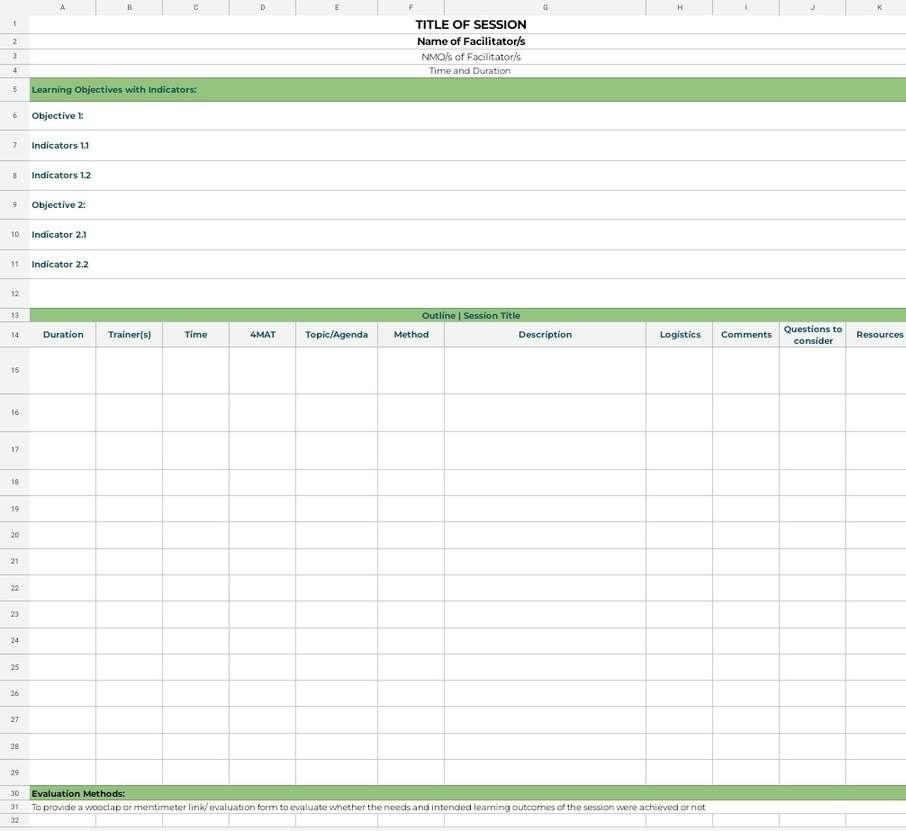
The 4MAT: It is a framework for learning that helps educators deliver information in more dynamic and engaging ways.

a. Why
- Ask an experience about the topic to the participants.
- Analyze the problem of the participants. The other participant can comment/share their thoughts about the problem.
b. What
- Integrating the problem into the concept: what is the correlation?
- Construct the whole concept of the topic to be discussed.
c. How
- Make focus group discussion(SWG) and discuss the case, such as identify the problems, comprehend the ideas, solve the problem, etc.
- Role play to make the participants more understand about the topic (Within SWGs).
d. What If
- Analyzing application for relevance and usefulness, identify the limitation, review, summarise or evaluate the session.
- Build a plan for after the session: doing and applying (Where to implement).
As medical students, we are often under a great deal of stress due to the rigorous academic demands and high-pressure competition we face The stress can be overwhelming and can negatively affect both our physical and mental health. However, there are ways to prevent and cope with stress that can help medical students successfully navigate their education and career. So grab your notebook and take notes, because we will discuss three essential strategies for prevention and coping with stress for medical students.
It sounds like a cliche, but one of the most effective ways you can prevent and cope with stress by managing your time effectively. Medical students have to juggle many responsibilities, such as attending classes, studying, completing assignments, clinical rounds, and personal life. This makes it essential to plan your schedules and prioritize tasks or else there won’t be time for the most important things. Yes, the FOMO will kick in, but you have to kick it sometimes. Some helpful resources to use are online calendars, time management apps, and study schedules to plan your daily and weekly activities. This way, you will avoid last-minute cramming, reduce stress, and improve your academic performance.
Candles and a bath, anybody? Medical students often neglect their self-care, which can lead to stress and consequently burnout. It is crucial to prioritize self-care activities such as regular exercise, healthy eating, getting enough sleep, and taking breaks. Pause the academics for a while, socialize with friends and family, and engage in hobbies they enjoy. When this stops working, you can (and should) also seek support from mental health professionals, such as counselors, therapists, and psychiatrists, to help you manage stress and anxiety.


It sounds like a cliche, but one of the most effective ways you can prevent and cope with stress by managing your time effectively. Medical students have to juggle many responsibilities, such as attending classes, studying, completing assignments, clinical rounds, and personal life This makes it essential to plan your schedules and prioritize tasks or else there won’t be time for the most important things Yes, the FOMO will kick in, but you have to kick it sometimes. Some helpful resources to use are online calendars, time management apps, and study schedules to plan your daily and weekly activities. This way, you will avoid last-minute cramming, reduce stress, and improve your academic performance.
It is not news; medical students face a burdening amount of stress. However, we can prevent and cope with stress by practicing the above tips. Time management, self-care, and mindfulness - simple but powerful strategic. By incorporating them into our daily lives, we can successfully navigate our education and career while maintaining our physical and mental well-being. Perhaps work-life balance will prove real after all.

By the time the insecticide DDT was outlawed, 165 or more insect species were immune to its effects.
Rats and mice are becoming resistant to the pesticide used to kill them, warfarin, and some are even immune to its replacement, superwarfarin.
Our LORE, Mohamed Mousa, attended PRET Training in the EMR Camp 1.0 that was held in Lebanon from the 27th of April to the 1st of May, in which we had an AUSSS Exchange Trainer, Mr. Mostafa Wassim. We also held a Pre-Departure Training 2 for our outgoings on the 18th of April.

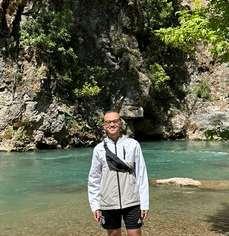
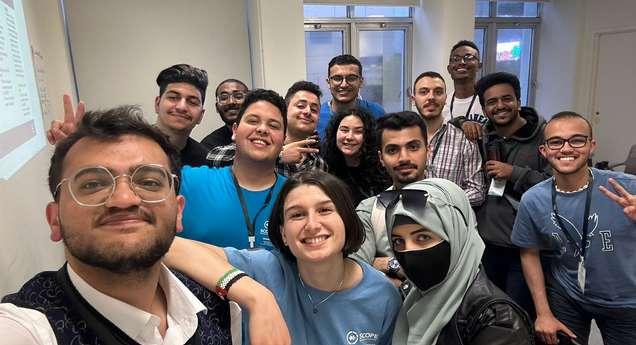
Mohamed Mousa - LORE 22/23.
Work in the Project Support Division is one of a kind in a sense that you get to see the behind-thescenes aspect of each wonderful campaign in AUSSS. Our creative teams plan campaigns to formulate a "concept note", and our division reviews them to make sure we produce campaigns that are effective and up to standards. We received a TON of concepts note this April, but we gotta keep them secret for now so stay tuned, there is amazing stuff coming! If you, dear reader, cannot handle the wait, then you can join our team and get early access to the upcoming campaigns as well as have a hand in shaping them. Fun!
Sara Galal - PSDD 22/23.The SCOME highlight of the month, if not of the whole year was our SUTURING WORKSHOP! The highly awaited workshop occurred on the 27th of March. Even though this coincided with the first week of Ramadan-a notoriously busy time of the year, we had a full house with even a few exchange students! Overall, the workshop was a great success and the feedback from all attendees was great!
Furthermore, this workshop is part of the Skilled Medical Practitioners SCOME Focus Area that focuses on enhancing the competencies of the future doctors and healthcare workers by improving their practical skills, so they can fit the needs of the society and provide good, efficient, and updated care to their patients.
Finally, we would like to thank Dr. Mohamed Ibrahim, a plastic surgery resident at Ain Shams University Hospital, for giving this workshop that consisted of a theoretical part followed by hands-on training in some of the more common stitches.
Coming up, is the first AUSSS manual ever: Comprehensive Sexual Education, a conjoint manual with SCOME and SCORA. Watch out for it!
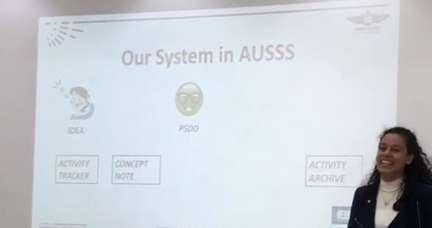
And to end the month with some amazing news, SCOME AUSSS was awarded third place for best LCs for the months January and February, this achievement wouldn’t have happened without the tremendous amount of support from our beloved EB and without the outstanding and the amazing SCOME Local core team member.
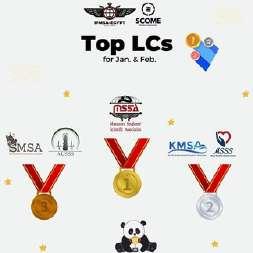
Sohaila Khokha - LOME GA.

Tireless and dedicated, we, the SCORA team, have been pouring our heart and soul into SRHR work this month. From organizing a compelling family planning series to raise awareness for sexual dysfunction and infertility. We have also gone above and beyond, shedding light on crucial issues such as obstetric violence, postpartum depression, and FGM, in our powerful campaign for maternal health. Our drive to educate and empower individuals with comprehensive sexual education is truly awe-inspiring, as evidenced by the massive reach of the CSE campaign with SCOME, even garnering the attention of Speak Up. Our team is inspiring ,passionate, and hardworking angels who together aim to create positive change in the world. Next month holds even more promise for SRHR advocacy, and we can't wait for you to see what we will accomplish next Hats off to me and the whole SCORA team for our incredible efforts!
Dearest AUSSS PHamily,During the holy month of Ramadan, SCOPH was all but resting! We’ve done 4 activities: Eating Disorders with SCORP; The Good, The Bad, and the Ugly; Erectile Dysfunction and Infertility with SCORA; and the most festive, Ramadan Activity
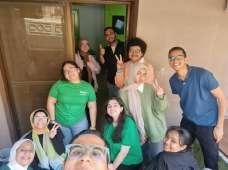
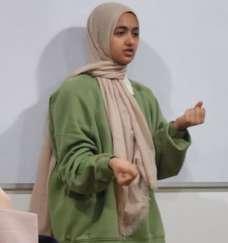
3.0 with CBSD. Sociable as always, we welcomed on board the Department of Psychiatry and Share a Smile organization in the process. We genuinely couldn’t be prouder or happier with the work we’ve done. It’s fair to say that the rest of this Eid has been well-earned Currently, we are cooking up a very special May for you. So, stay tuned, SCOPHamily!


With LoPH, and on behalf of the beautiful SCOPH team, Roaa
MogahedLPO 22/23
During the first half-term, I was solely focused on two things: 1. Grinding out campaigns for causes my team and I are passionate about 2. Building a team.
We may or may not agree on this, but I believe that a lot of work has been put into these 2 aspects, and as someone who gets bored quite fast, it was time to set new goals. For the upcoming half term, which included April, I decided that it was time to focus on capacity building, whether it be through camps, empowering members on my team to gain new opportunities, toolkits, manuals, one-on-ones, etc. After all, it is the backbone of our organization.
Accordingly, during April, we carried our first capacity building camp where we not only increased the participant’s human rights knowledge but also built their soft skills necessary to survive and grow in AUSSS and IFMSA. It truly was a huge success thanks to all the trainers who worked really hard on making this happen, and all the participants that showed up every day despite how long the camp was.
Stay on the lookout for our upcoming camps because we will be upping our game.
Until next time, Rodaina Abdelwhab, LORP 22/23.
Youssef Abolyazeed - LORA GA.April was a month full of work, spirituality, studying and as always, for us, advocacy.
Yes, we work, but we gather to have fun as well! Getting together for our annual iftar has been the main feature of our month! Both current members and alumni gathered under the Green Family Spirit, and let me tell you, all of Sheraton has borne witness.
From casual conversation to random boba tea runs, it was everything a member of a community would need to recharge. Having our own iftar right after packaging meals to be spread out definitely made our whole week. What is a gathering without empathy and compassion anyway?
We end this month with 7 resilient online campaigns, 4 keeping up with hamoosa Ramadan Specials, a prosperous Ramadan Activity, one hybrid CB/SCORP camp, an online International competition with ICYF official, and a Pre-Departure Training 2. Not to mention that we had 8 representatives to the IFMSA-Egypt annual Iftar.
Also, AUSSS flew all the way to Lebanon with Mr. Mohamed Mousa, Ms. Asmaa Dirar, and our very own NEO-OUT, Mr. Mostafa Wassim, who was a PRET Trainer, for the EMR camp 1.0. Aside from Lebanon, Ms. Mayar El sherif and Ms. Hamees Magdy went to Alexandria for the Art in Medicine workshop!
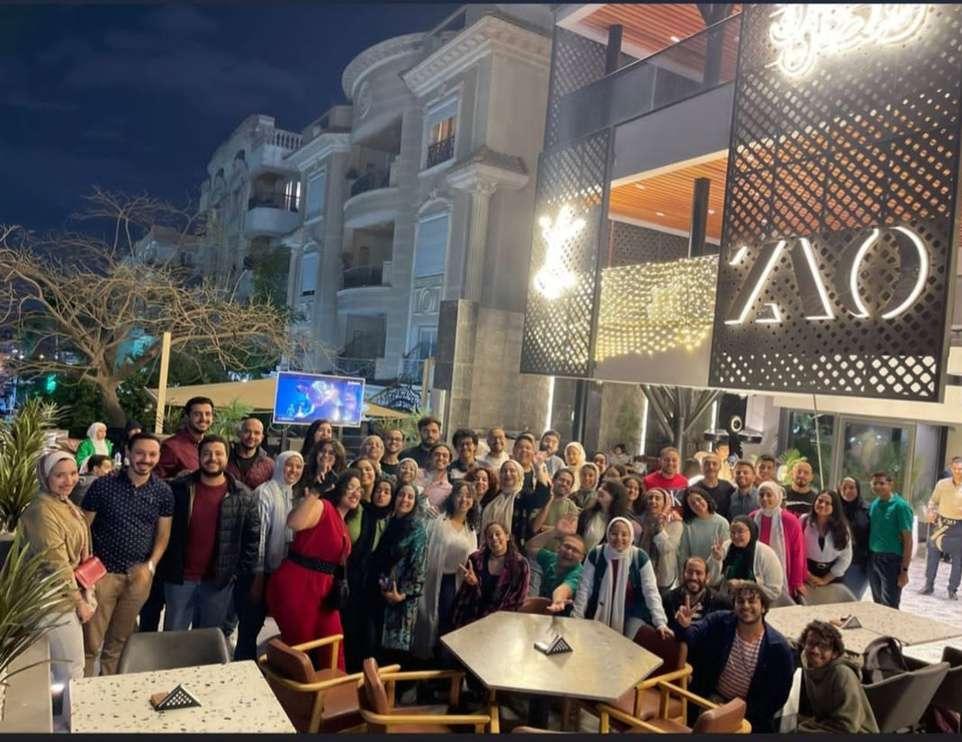






AUSSS could not let the league of workshops pass us by, as such, we had both Ms. Samira Yasser and Mr. Omar Elmowafi as facilitators in the BGH workshop. Also, a total of 5 participants attended the workshops. I'd say we totally crushed March.
Every month, AUSSS proves resilience is putting in the hours. So stay resilient, keep up the fight, let's change the world one small step at a time.
See you next edition. Don't forget to stay passionate!
Heba Ismail CBSDD and Magazine Coordinator-Editor.




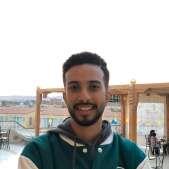
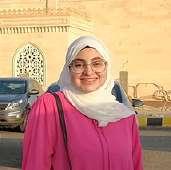





 Hamees Magdy PnSDD Designer Tips & recipes
Rodaina Abdelwhab SDGs coordinator
Heba Ismail CBSDD Coordinator Editor
Habiba Elmasry CBSDD GA Coordinator Folklore
Sara Kamal Exchange Reporter
Mariam Ashraf SCORP Reporter
Abdulaziz Mohammed SCORA Reporter
Tabia Khan Trivia Trickster
Muskan Lateef World News Reporter
Obayda Abdullah World News Reporter
Hana Taher SCOME Reporter
SCOPH Team
Hamees Magdy PnSDD Designer Tips & recipes
Rodaina Abdelwhab SDGs coordinator
Heba Ismail CBSDD Coordinator Editor
Habiba Elmasry CBSDD GA Coordinator Folklore
Sara Kamal Exchange Reporter
Mariam Ashraf SCORP Reporter
Abdulaziz Mohammed SCORA Reporter
Tabia Khan Trivia Trickster
Muskan Lateef World News Reporter
Obayda Abdullah World News Reporter
Hana Taher SCOME Reporter
SCOPH Team
